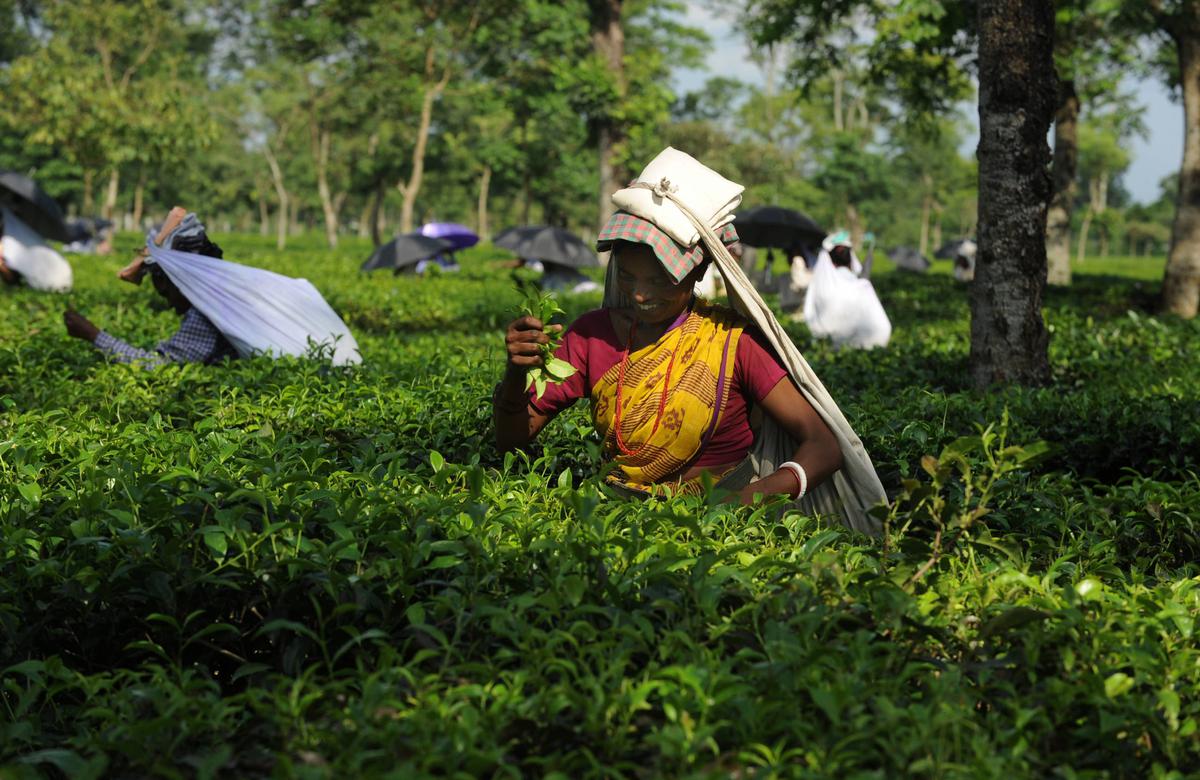
Explained | Why is the Darjeeling tea industry in crisis? Premium
The Hindu
What intervention has the Tea Board of India sought? Will financial help alone be enough to save the gardens in the hills? What more needs to be done to rescue the ailing brew?
The story so far:
Early this month, during the annual general meeting of the Indian Tea Association (ITA) in Kolkata, the Tea Board of India said it had sought a special financial package of ₹1,000 crore from the Centre for the tea Industry over five years. Tea Board officials admitted that Indian tea had not been able to establish itself globally, and that one of its key brands, Darjeeling Tea, was under acute stress.
Darjeeling Tea, called the ‘Champagne of Teas’, was the first Indian product to get the GI (Geographical Identification) tag in 2004 for its distinctive aroma and flavour. About 87 gardens in Darjeeling which employ about 55,000 workers produce approximately 7 million kg of tea, most of which is exported. According to insiders, over the past few months a lot of gardens in the hills have changed hands because the owners were reeling under higher costs of production and other issues. ITA chairperson Nayantara Palchoudhuri said the financial problems of the Darjeeling Tea industry were acute, and the Government’s help was needed.
A report by the Parliamentary Standing Committee of the Ministry of Commerce, tabled in Parliament in June, said “unhampered and easy influx of substandard tea from neighbouring countries, especially Nepal” is jeopardising the tea industry of India. The document pointed out that inferior quality tea from Nepal was being imported, and then sold and re-exported as premium Darjeeling Tea. Under the Revised Treaty of Trade between the Governments of India and Nepal in October 2009, both parties had agreed to exempt from basic customs duty, as well as from quantitative restrictions, the import of mutually agreed primary products. Data from the Tea Association of India show that the total tea imported from Nepal in 2020-21 was 10.74 million kg; during the same period, the total tea import of India was pegged at 27.75 million kg. Industry experts said Nepal, which shares similar climatic conditions and terrain, produces tea at a lower price because of less input costs, particularly labour, and fewer quality checks. Even though the quality is no match, yet the tea from Nepal posed a serious challenge to Darjeeling Tea, officials said.
The influx of tea from Nepal picked up pace in 2017, when the 107- day agitation and shutdown in the Darjeeling hills brought tea production to a halt. From June to September 2017, tea bushes in Darjeeling lay unattended during the agitation called by the Gorkha Janmukti Morcha over demand of a separate State of Gorkhaland. In 2017, the production of Darjeeling Tea hit a low of 3.21 million kg. Since a substantial market of Darjeeling Tea is exported, exporters switched to cheaper varieties of tea, including the imported variety from Nepal. Tea planters and industry experts admit that the tea industry in Darjeeling has not recovered from the damage it incurred in 2017.
The reduction in production and rise of input costs is another worry. Tea production in Darjeeling which used to be around 10-12 million kg a decade back now stands at 6.87 mkg (2021). Industry experts say the decline in production is due to multiple factors, which include climate change, declining yields and high absenteeism among workers. Because of the hilly terrain of Darjeeling there is no land left for expansion of tea gardens. The tea bushes are older than other parts of the country. Uprooting and planting them is both time and cost intensive.
Industry experts point out that an average tea garden in Darjeeling is about 150 hectares whereas those in the foothills vary from 400 to 500 hectares. The average yield per hectare of Darjeeling Tea, according to ITA, is about 350 kg at present which was about 542 kg in 2000. The yield per hectare in the foothills, particularly the Dooars region, is about four times higher than the Darjeeling tea gardens.

Can RBI’s proposal to waive foreclosure charges help micro and small industries? | Explained Premium
RBI proposes to waive foreclosure charges and prepayment penalties on loans for MSEs, aiming for easy financing.












